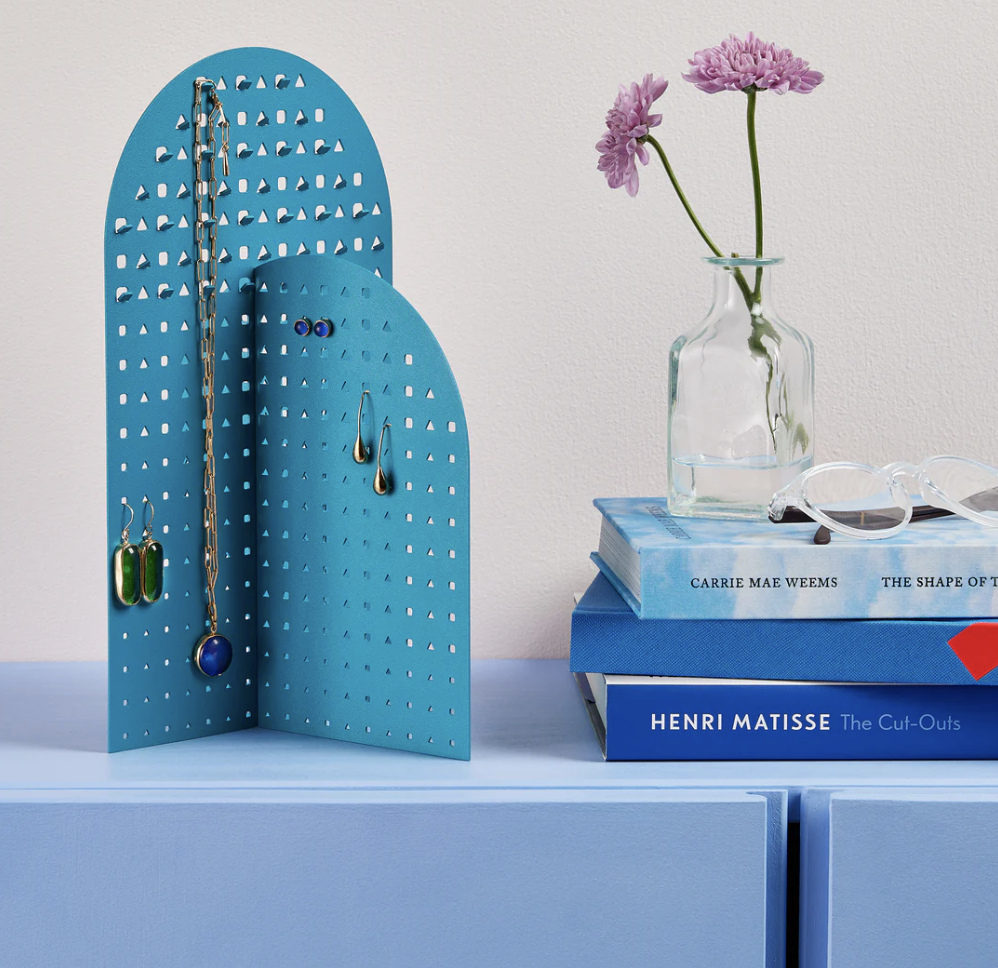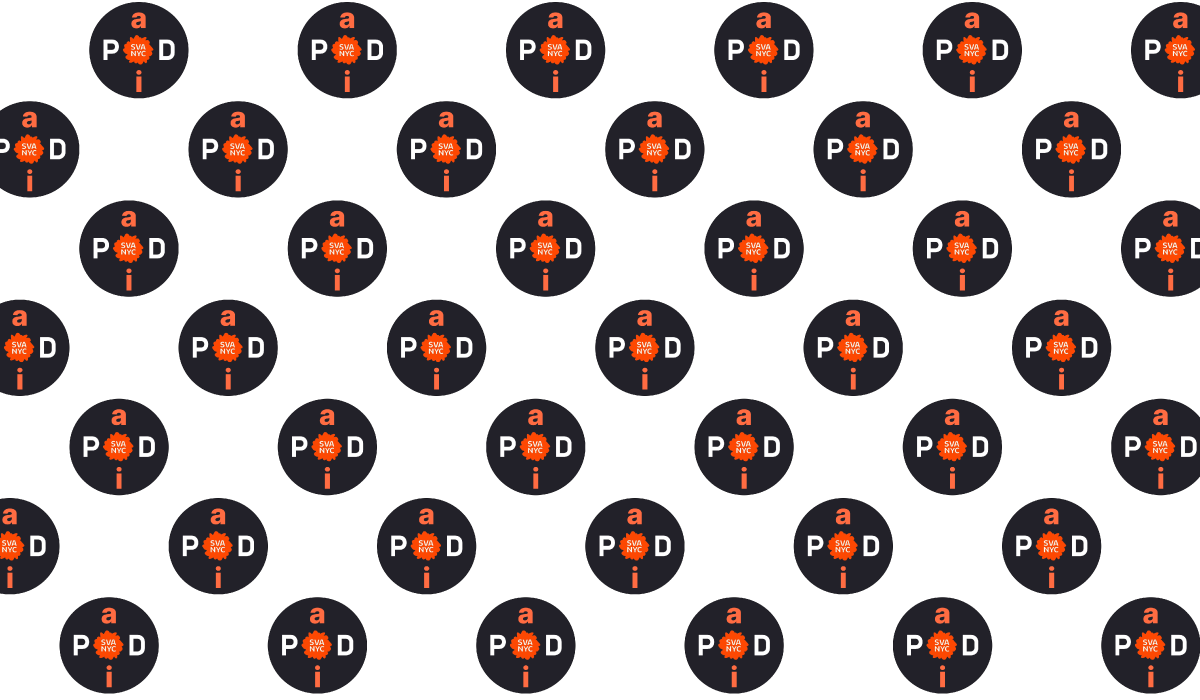Department Blog
Department news, events, and snapshots of student life at SVA in New York City.
Featured Posts
All Blog Posts

Snapshots from 12ELVE: Our 2025 Thesis Presentations!
On May 7th, 2024, the eleventh group of MFA Products of Design graduates presented their final thesis projects. Friends, family, design professionals, faculty, and staff gathered at the SVA Theatre in New York City to watch and share in the festivities. Ranging in topics from Designing for Esport Althetes and Exploring Therapeutic Avenues for Nightmares, to Menstrual Confidence and Elevating Women as Climate Change Agents, the graduates shared hundreds of products, services, apps, platforms, and experiences throughout the day-long event. Check out more projects from this year’s graduates, here, and enjoy some snapshots of the day below!
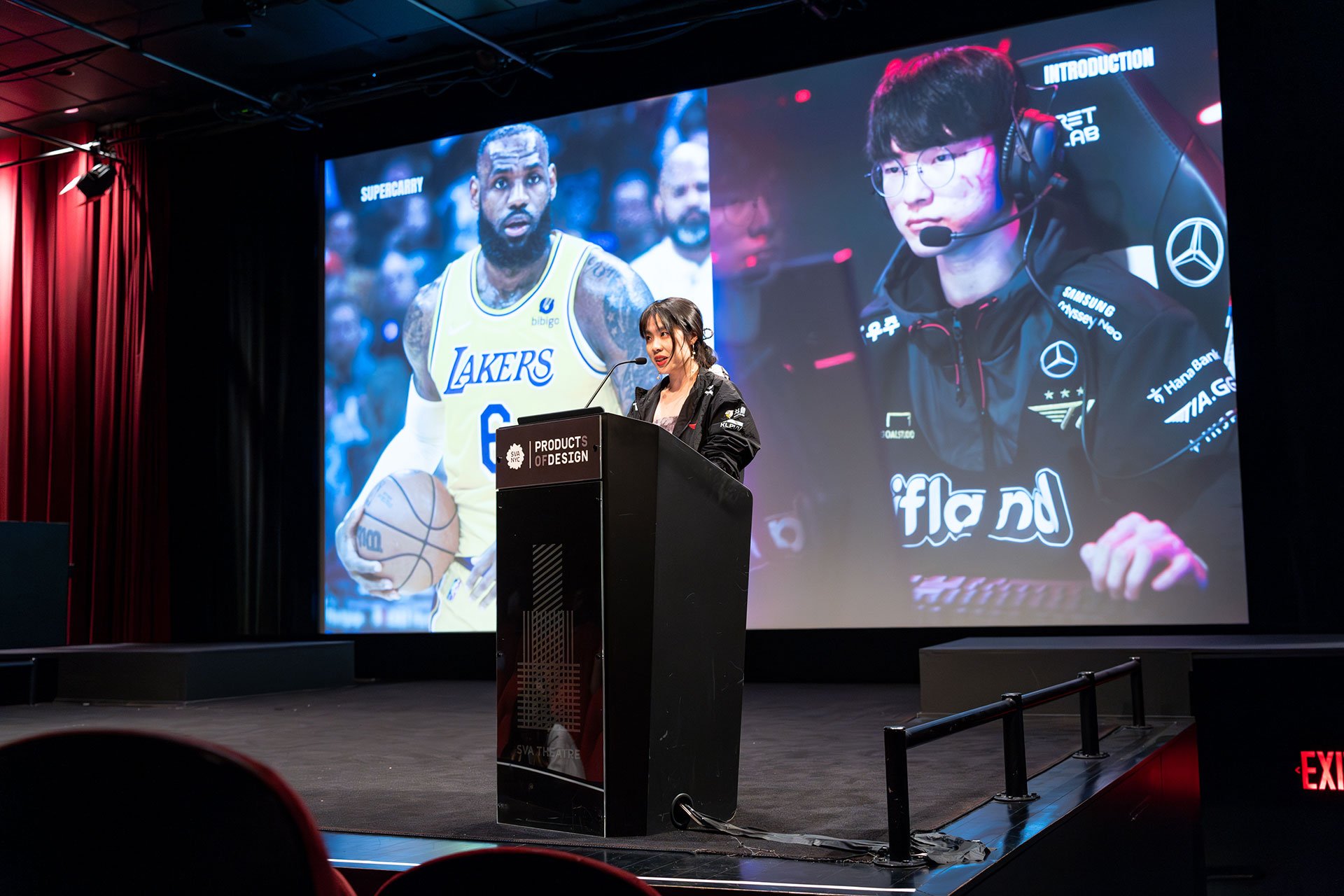
Snapshots from E11VEN: Our 2024 Thesis Presentations!
On May 7th, 2024, the eleventh group of MFA Products of Design graduates presented their final thesis projects. Friends, family, design professionals, faculty, and staff gathered at the SVA Theatre in New York City to watch and share in the festivities. Ranging in topics from Designing for Esport Althetes and Exploring Therapeutic Avenues for Nightmares, to Menstrual Confidence and Elevating Women as Climate Change Agents, the graduates shared hundreds of products, services, apps, platforms, and experiences throughout the day-long event. Check out more projects from this year’s graduates, here, and enjoy some snapshots of the day below!
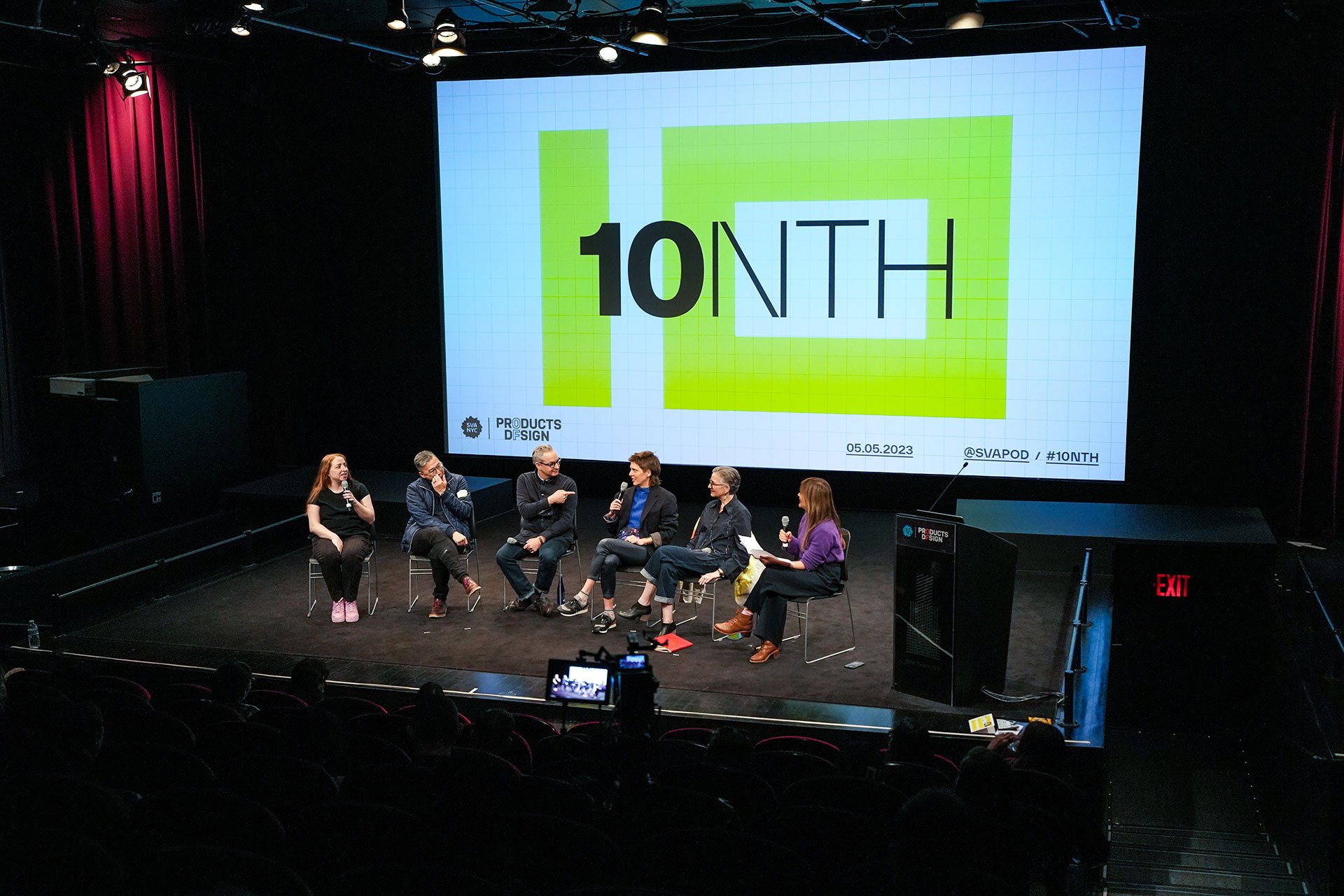
Snapshots from 10NTH: Our 2023 Thesis Presentations!
On May 5th, 2023 the tenth group of MFA Products of Design graduates presented their final thesis projects. Friends, family, design professionals, faculty, and staff gathered at the SVA Theatre in New York City to watch and share in the festivities. Ranging in topics from Designing for Disability Inclusion in Space and Design Interventions for Gendered Agency in Latin Partner Dance, to Integrating Art to Enhance Interdisciplinary Learning and Empowering Women in Creative Industries, the graduates shared hundreds of products, services, apps, platforms, and experiences throughout the day-long event. Check out more projects from this year’s graduates, here, and enjoy some snapshots of the day below!
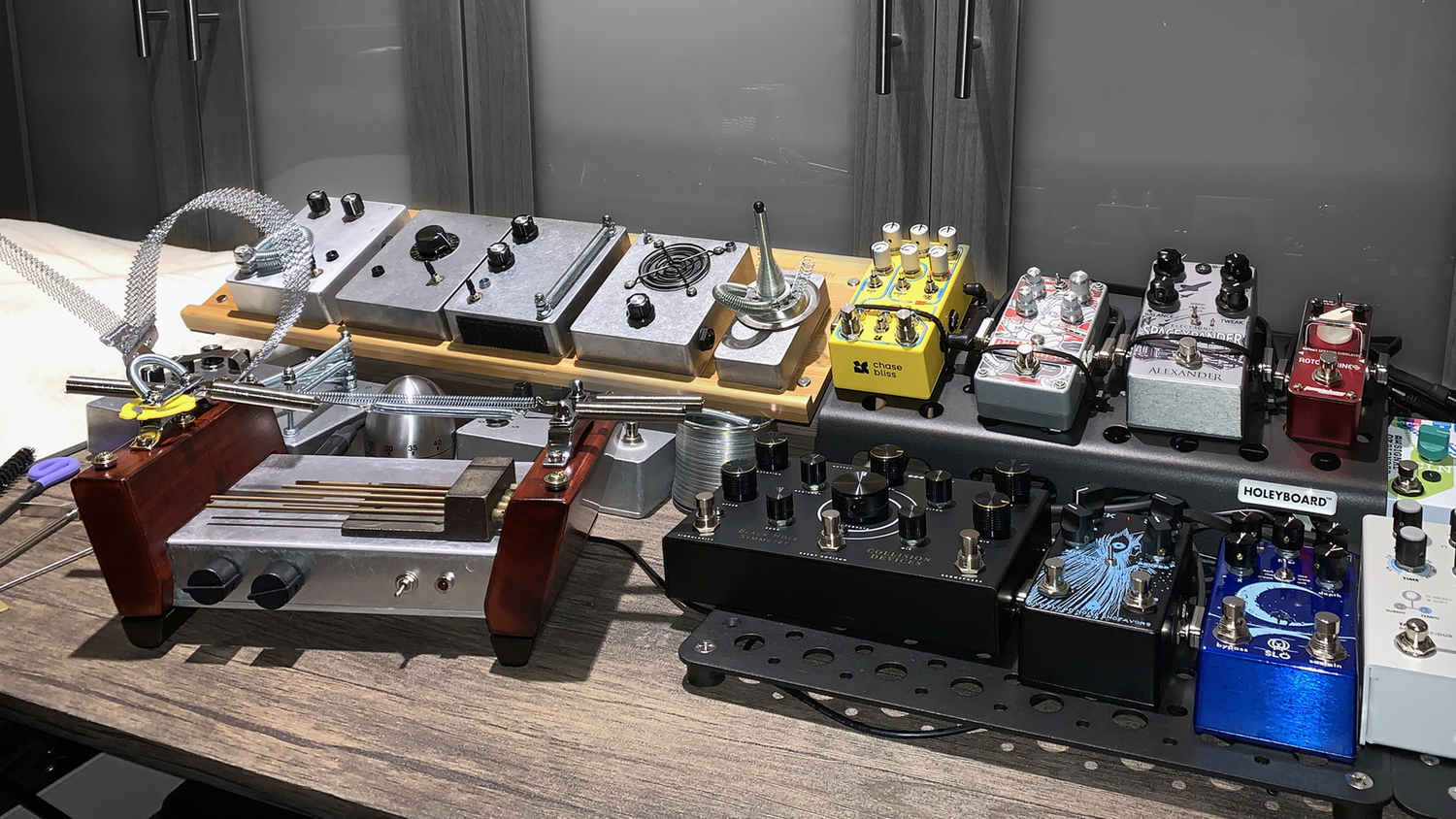
A Fascination with Noise: Contact Mics, Everyday Objects, and Product Design
Contact mics exist at the intersection of experimental music, sound art, analog electronics, and DIY-making culture. In her thesis, Anne Keating explores the design challenge of analog sound circuits, contact mic'd instruments, and the DIY maker culture surrounding the contact mic. She looks at the space occupied by noise artists and boutique guitar pedal makers who build contact mic'd noise devices. She examines how building contact mics serve as a gateway to analog circuit building and why this activity is relevant against the backdrop of digital devices and experiences.
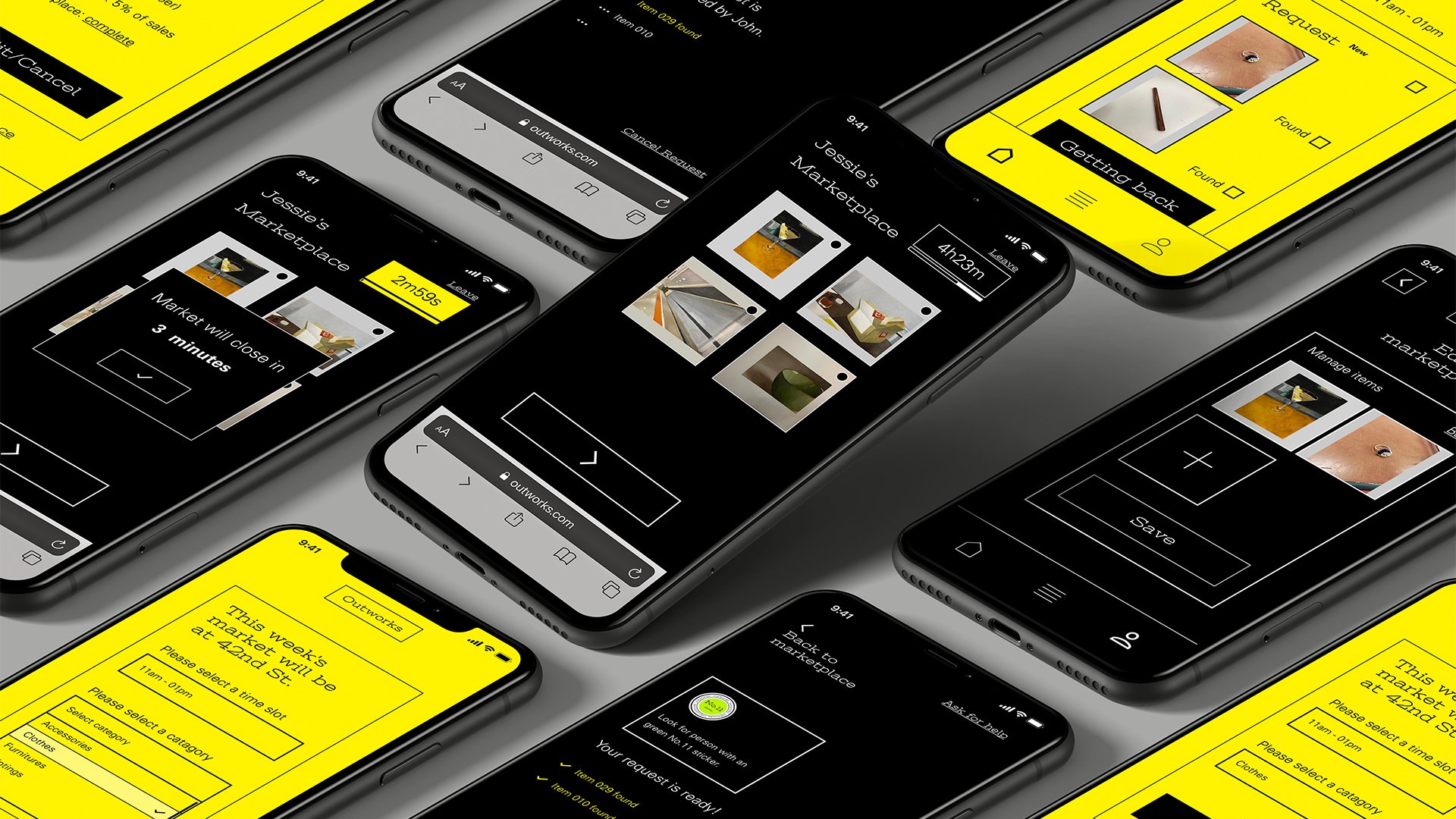
Do As a Pirate Does: An Unauthorized Hacking Guide to a Creative Future
Designers hate piracy. We have been told that pirates are the natural enemy of designers and the corruption of this industry. Nevertheless, Zekun Yang still chose piracy as her topic because she believes that we must challenge our assumptions to create change. In her thesis, Zekun acts as a pirate herself to "hack" into the design industry and address the problem of imbalance between designers and users, bringing a more inclusive future. This thesis can be summarized with a simple axiom: Do as a pirate does—it serves as an Unauthorized Hacking Guide to a Creative Future. In what follows, Zekun has designed products to encourage people to act like pirates, critique designs, and invite more people to build, make and design. She has also pirated the way pirates behave and applied it to make a formerly exclusive industry more inclusive.

The Powerless Metaverse: Inclusivity, Equity, and Ownership
Isabell Park's thesis, The Powerless Metaverse: Inclusivity, Equity, and Ownership, investigates the Metaverse through the lens of design to solve complex problems of access, socioeconomic gaps, and more. Metaverse, a recent buzzword, is defined as a digital world currently entered through virtual reality (VR) or augmented reality (AR) that allows people to interact, mimicking the real world. Isabell was inspired to explore the topic when the South Korean government recently decided to significantly invest in the Metaverse. “This funding expanded opportunities for people to enter the Metaverse.” Isabell explains. “With skyrocketing rents and low wages, the socioeconomic gap is significant.” This inequality allowed only the top 10% to afford physical properties—whereas people found the Metaverse to be an opportunity to own digital investments and properties. In Isabell’s design investigations she asks the question, “Does this technology have to lead to such a dark future?”
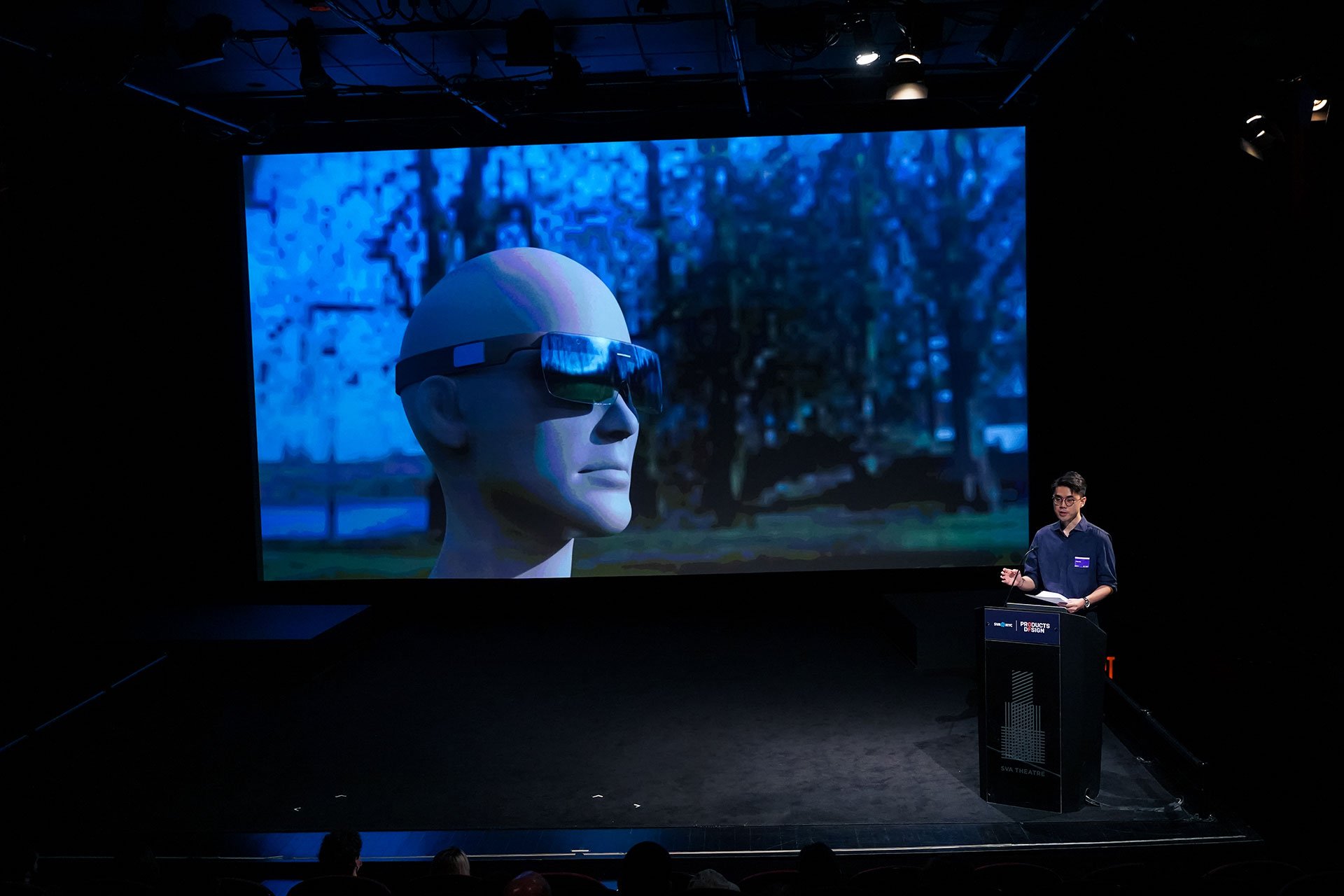
Snapshots from N9NTH: Our 2022 Thesis Presentations!
On May 6th, the ninth group of MFA Products of Design graduates presented their thesis projects. Friends, family, design professionals, faculty, and staff gathered at the SVA Theatre in New York City to watch and share in the festivities. Ranging in topics from designing towards fat liberation and understanding chronic pain, to “raising a healthier AI” and using technology to nurture distant relationships, the graduates shared hundreds of products, services, apps, platforms and experiences. Look for comprehensive project posts coming up, but for now please enjoy snapshots of the day!
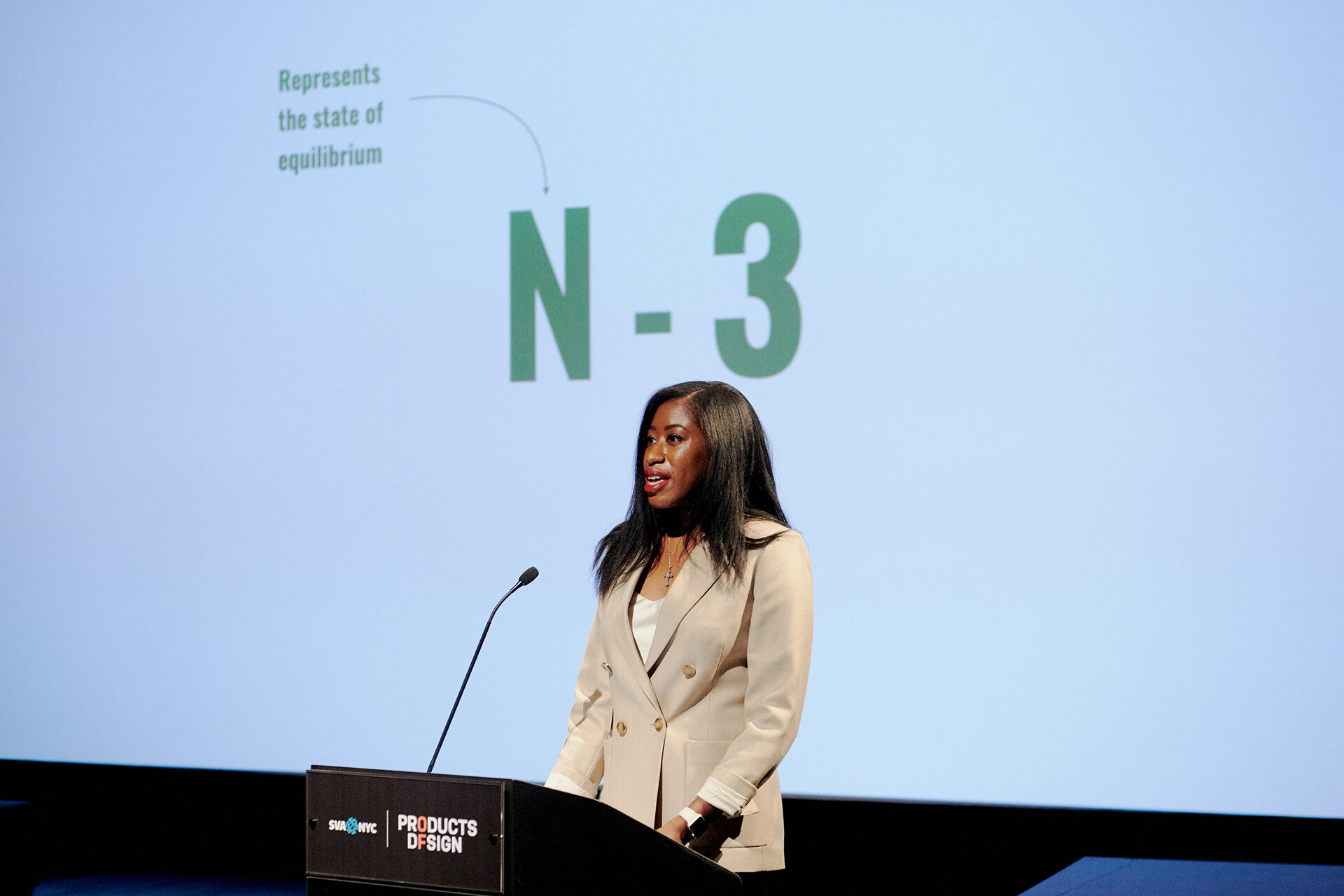
N-3+Me: Urban Resilience at Human Scale
Regena Paloma Reyes is a service designer, New York City resident, and urban enthusiast. Her thesis, N-3+Me: Urban Resilience at Human Scale, investigates factors that promote adaptability in city-dwellers during times of crisis. Urban communities seem more likely to suffer significant losses in unnatural catastrophes, from infrastructure failure to terror threats due to their high population density. The ensuing collection of research and product design examines how resilience can be at its greatest in urban environments, and how city spaces, diverse populations, and the expansive interpersonal networks that arise therein can be used to create cultures of preparedness at individual, interpersonal, and community scales.
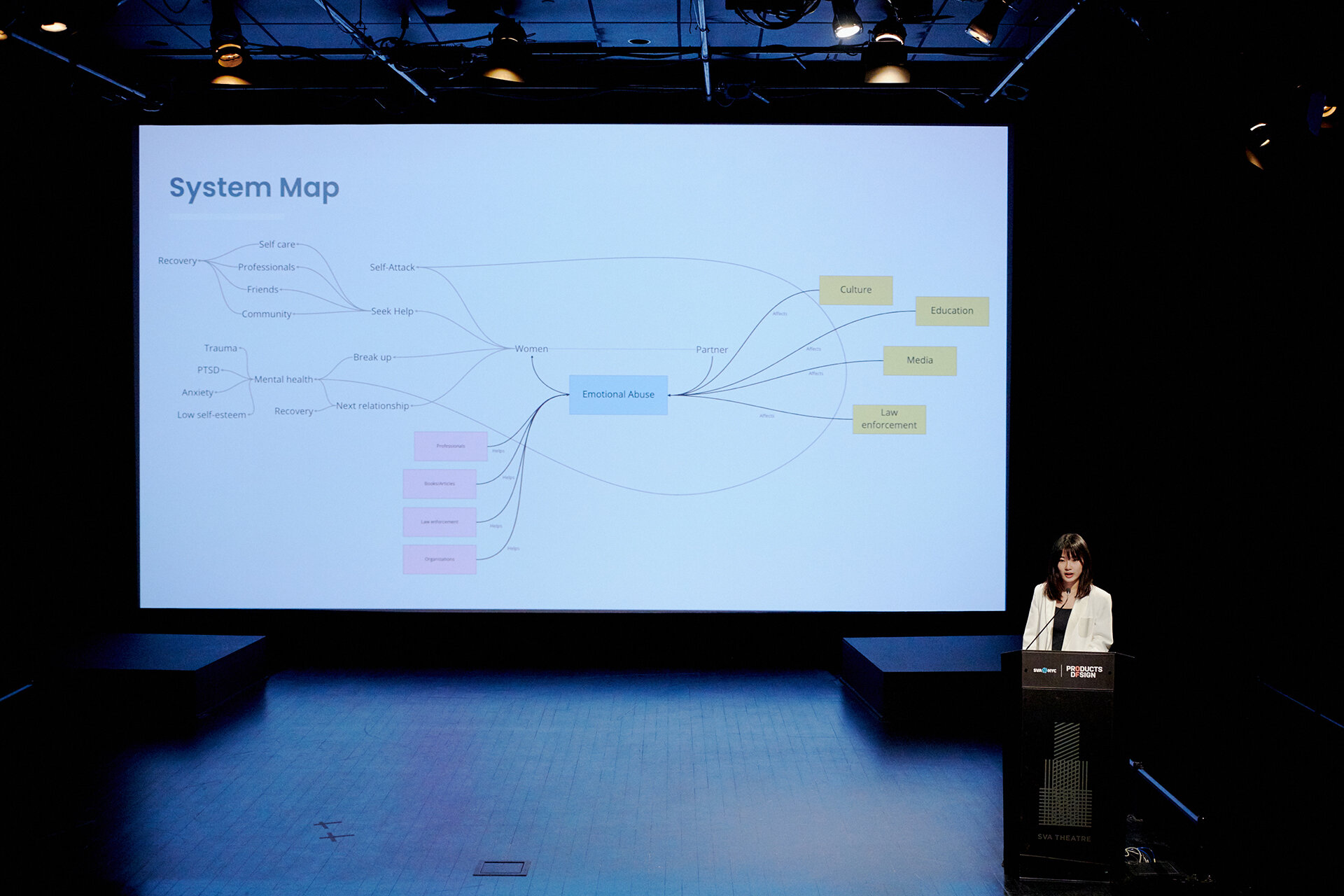
Out From Control: Design Interventions Around Emotional Abuse
Xiaohan Miao's thesis, Out From Control: Design Interventions Around Emotional Abuse, is an in-depth analysis of emotional abuse towards women in relationships. While researching the complexity of emotional abuse, Xiaohan decided to zero in on the healing process from a personal angle—an individual woman’s journey. This body of thesis work proposes solutions to transform the narratives around emotional abuse, raise awareness, validate women's intuition, and takes the form of interventions such as a new social network for victims and the reimagining of self-care through journaling.

